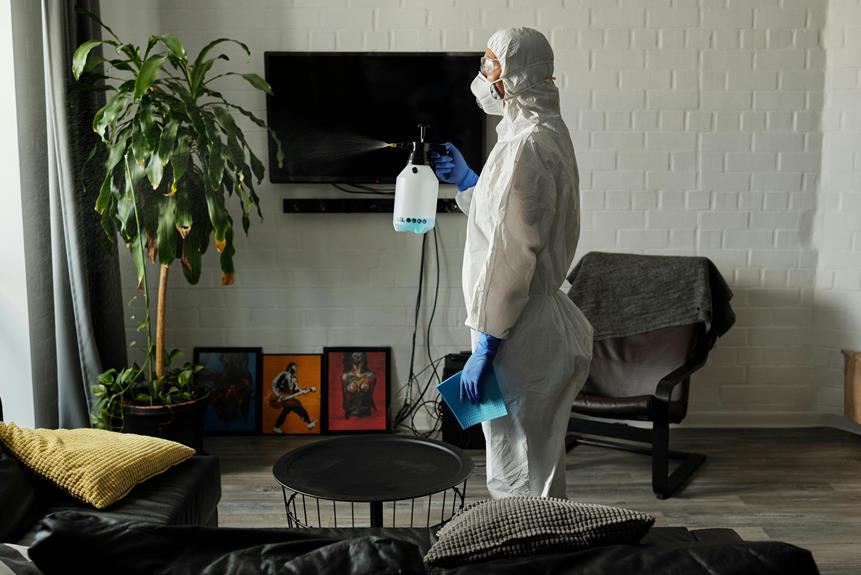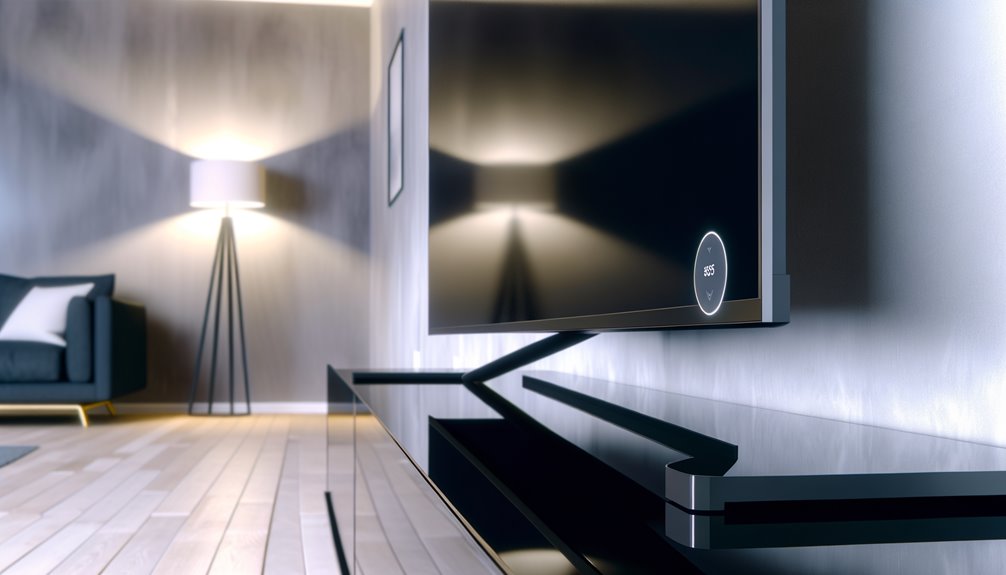TV licence inspectors are tasked with ensuring that all television equipment and services in a household comply with licensing laws. During their inspections, they check if there are TV sets that can receive live broadcasts, and assess the use of streaming services such as BBC iPlayer. They also verify if smart TVs are accessing live channels and inspect any recording devices used to view broadcasts without a licence. Inspectors conduct interviews to gather evidence and determine if the household has the necessary licence for their viewing activities. Understanding the specifics of these inspections can greatly clarify the scope and intent of the inspection protocols.
Inspector Identification and Authority
When approaching a property on suspicion of non-compliance with TV licensing laws, inspectors are mandated to clearly identify themselves and explicitly state the purpose of their visit.
Lacking a legal right for forcible entry, they seek permission or present a warrant. Body cameras record these interactions for transparency.
If non-compliance is suspected, they caution occupants about their rights during questioning, ensuring proper legal procedures are followed.
Equipment and Services Checked
TV licence inspectors are thorough in their examination of equipment and services during their visits to guarantee compliance with licensing requirements.
- Television sets capable of receiving live TV broadcasts
- Usage of streaming services like BBC iPlayer
- Presence of Smart TVs accessing live channels or streaming
- Recording equipment indicating potential unlicensed live TV viewing
- Enquiry into services used, ensuring householder's compliance with the licence fee
Methods of Detection and Verification
Inspectors employ several techniques to detect unauthorized use of television broadcasting services. They verify TV licence compliance through home visits, interviews, and monitoring IP addresses for streaming live TV or iPlayer. Evidence is collected via interviews under caution and checks on equipment like smart TVs.
| Method | Purpose | Tools Used |
|---|---|---|
| Home Visits | Verification | Interviews, Equipment Check |
| IP Monitoring | Detect Streaming | Monitoring Software |
| Interviews | Gather Evidence | Verbal Admissions |
Rights and Limitations of Entry
Understanding the rights and limitations of entry is essential for both TV licence inspectors and occupants.
- Consent Required: Inspectors need permission to enter unless they have a warrant.
- Identification: Inspectors must identify themselves and explain their visit.
- Privacy Respect: Inspectors cannot inspect devices without approval.
- Right to Refuse: Occupants can legally refuse entry without a warrant.
- Legal Boundaries: Entry must align with legal standards and respect privacy.
Consequences of Non-Compliance
Non-compliance with TV licensing regulations carries serious repercussions.
Ignoring warning letters can trigger frequent home visits by inspectors to guarantee adherence.
Those found without a valid TV licence may face fines up to £1,000, plus legal costs from enforcement proceedings.
Persistent non-compliance risks legal action and potential disruption of TV services, including the dismantling of equipment used to illegally view BBC content.
Legal Procedures and Appeals
When a TV Licence inspector suspects non-compliance, they may apply for a search warrant to enter and inspect properties.
- Search Warrants: Essential for lawful inspections where evidence suggests unlicensed TV watching.
- Procedural Compliance: Critical to avoid legal action and potential prosecution.
- Appeals Process: Available for contesting enforcement decisions, especially with insufficient evidence.
- Legal Advice: Highly recommended for managing prosecution complexities.
- Enforcement Offenses: Includes obstruction of inspectors or refusal to identify oneself.
Frequently Asked Questions
How Do TV Licensing Investigate You?
TV licensing investigations observe consumer TV viewing habits through home visits and detection methods, ensuring license compliance. Inspectors collect evidence, employ surveillance techniques, and exercise legal powers to enforce fines and uphold consumer rights.
How Do TV Licensing Prove You Watch TV?
TV licensing proves TV viewing by employing surveillance methods, inspection techniques, and evidence collection. They monitor compliance through IP surveillance, interview under caution, and inspect equipment, ensuring adherence to legal obligations and license fee implications.
Can You Refuse to Let TV Licence Inspector?
Yes, you can refuse to let a TV licence inspector into your home. Occupants are not legally obligated to grant access without a warrant, addressing privacy concerns and asserting individual TV licence rights during home visits.
Do TV Licence Inspectors Visit at Night?
Yes, TV licence inspectors may conduct nighttime visits, including evening inspections, to guarantee license compliance. These home visits are part of broader licensing enforcement tactics, respecting legal rights and addressing privacy concerns during inspection frequencies.
Conclusion
To sum up, TV license inspectors are authorized to verify compliance with licensing requirements, employing various detection and verification methods. They are legally entitled to inspect equipment that can receive broadcast signals. Non-compliance can lead to substantial penalties, highlighting the significance of adhering to national broadcasting regulations. Individuals have the right to appeal against any action taken, ensuring that the procedures are justly administered. It is crucial for residents to understand these rights and responsibilities to avoid legal repercussions.



